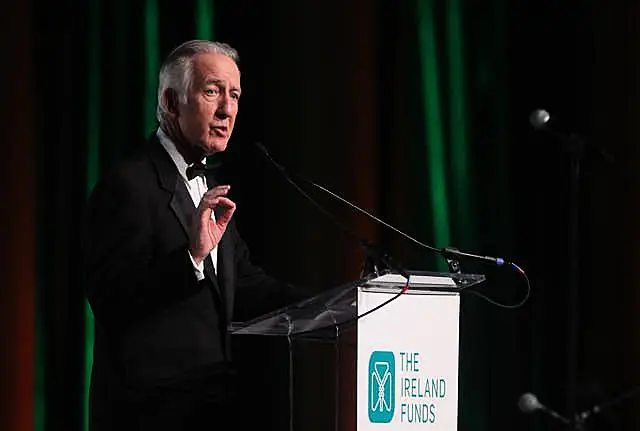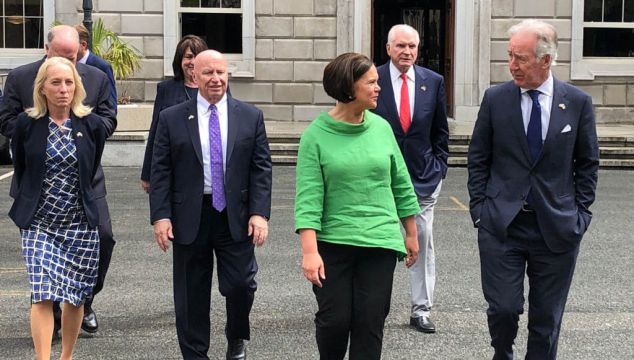The intervention of a group of US congress members visiting Ireland this week has been welcomed by Sinn Féin president Mary Lou McDonald.
The delegation, led by Richard Neal, met with Taoiseach Micheál Martin in Dublin on Monday. Mr Neal is set to address the Seanad later.
They warned the UK earlier this week that unilateral action on the Northern Ireland Protocol “will not work”, urging “face-to-face negotiation to work out some of these technical questions”.
Ms McDonald described the group as having taken a very keen interest in the peace process and Good Friday Agreement, adding they wield “considerable influence”.

However, the DUP has claimed the representatives have a “one-sided view” of the Northern Ireland protocol.
Ms McDonald said the delegation reiterated to her party the view from the US that the Good Friday Agreement must be protected, that the protocol is here to stay, that there are established avenues to smooth out of the matters of concern and that weeks on from the election the Stormont Executive needs to be formed.
She argued issues with the protocol “are not insurmountable” and accused the UK of “giving cover” to the DUP which is refusing to form a new Stormont Executives until issues with the post-Brexit arrangements are dealt with.
“For these matters to be resolved, and for the smooth implementation to be achieved to everybody’s satisfaction, you have to have good faith, cooperation and proper dialogue and negotiations, and in that regard the British government, Boris Johnson’s administration, has been sorely, sorely lacking,” she told the BBC.
“Unfortunately they are now giving cover to the DUP to use this as a ruse and a pretext to block government which I think everyone in the north recognises that we need to get the MLAs back to work, we need a sitting functioning Executive under the leadership of Michelle O’Neill”.
The Sinn Féin president confirmed that her party has invited all MPs and members of the House of Lords to attend a briefing session at Westminster on Tuesday evening for a “conversation about change, about what’s happening in Ireland, about the protocol and the absolute urgency and necessity to get the Executive up and running”.
Meanwhile, former US Congressman Bruce Morrison, who is co chair of Washington’s ad hoc committee to protect the Good Friday Agreement, described reports that the UK could legislate against the protocol within weeks as “very unfortunate”.
“I think the only acceptable solution to this problem, and it’s a problem because it presents a problem for various people in Northern Ireland, is negotiations between the UK and the EU, and unilateral action will not solve the problem,” he told the BBC.
“It may create a political sense of accomplishment for some but it will not get the situation between the EU and the UK in an acceptable place, and that can only be done by an agreement.”
He said the US delegation has not come to “create a problem”.
“I think this is something that has been scheduled for a while. I think they wanted to come right after the election. I think they want to encourage everybody who was elected to the Assembly to take up their offices and to make Stormont work,” he said.
“I don’t think those members of Congress mean any harm and I don’t think it will do any harm for them to express something that the president has expressed which is the urgency of the devolved Assembly being set up and getting to work.”
There has been controversy over the protocol since its inception.
Created to avoid the return of checkpoints along the Irish border, after years of negotiation it was agreed that new Brexit regulatory and customs processes would be placed along the Irish Sea.
Both London and Brussels agreed to this as part of the final Brexit negotiations.
Since its implementation in early 2021, the EU and UK have agreed that the protocol does not work as smoothly as it should, and both sides engaged in further negotiations.
Grace periods were introduced for some new Brexit trade rules in the protocol, meaning retailers and exporters do not yet have to adhere to all the checks and standards required.







